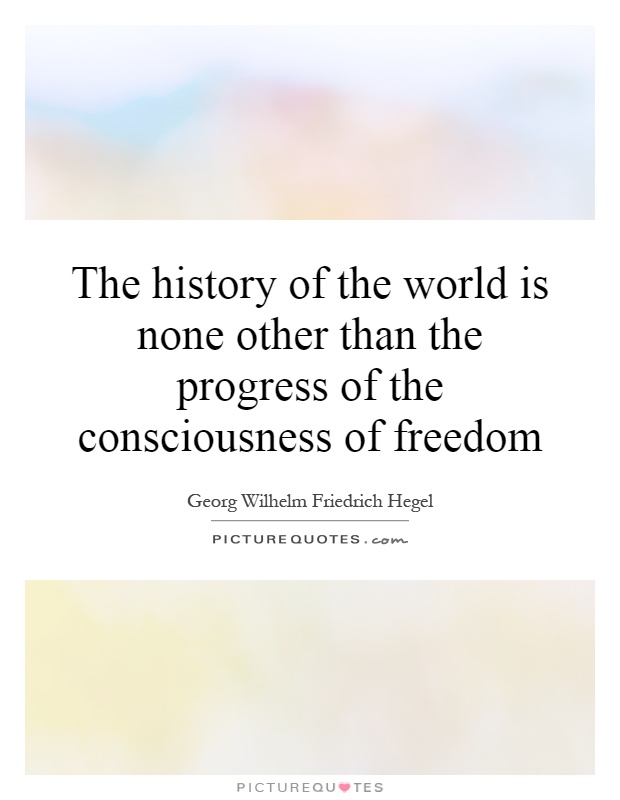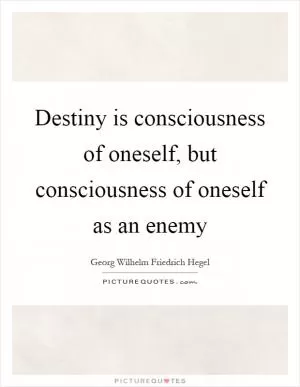The history of the world is none other than the progress of the consciousness of freedom

The history of the world is none other than the progress of the consciousness of freedom
Georg Wilhelm Friedrich Hegel, a German philosopher of the 19th century, is known for his profound insights into the nature of history and the development of human consciousness. One of his most famous quotes, "The history of the world is none other than the progress of the consciousness of freedom," encapsulates his belief that history is not just a series of random events, but a purposeful unfolding of human freedom and self-awareness.Hegel believed that history is driven by the dialectical process of thesis, antithesis, and synthesis. This process involves the clash of opposing forces or ideas, leading to a higher level of understanding and freedom. According to Hegel, each stage of history represents a step forward in the development of human consciousness and self-realization.
For Hegel, freedom is not just the absence of external constraints, but the ability to act in accordance with one's own rational will. He believed that true freedom comes from self-awareness and self-determination, rather than simply following the dictates of tradition or authority. As individuals and societies become more conscious of their own freedom, they are able to shape their own destinies and create a more just and harmonious world.
Hegel saw history as a progressive march towards greater freedom and self-realization. He believed that each stage of history represents a necessary step in the development of human consciousness, leading ultimately to a state of absolute freedom and self-awareness. This process is not linear or predetermined, but unfolds through the dynamic interplay of individuals and societies striving for greater freedom and self-determination.












 Friendship Quotes
Friendship Quotes Love Quotes
Love Quotes Life Quotes
Life Quotes Funny Quotes
Funny Quotes Motivational Quotes
Motivational Quotes Inspirational Quotes
Inspirational Quotes